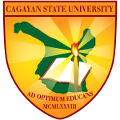This course deals with the study of parasitic protozoans and roundworms giving emphasis on their morphology, life cycle, disease/s they cause and its pathophysiology, prevention and control, treatment regimens and rehabilitation of treated cases. The understanding if such concepts shall prepare the students into becoming effective health promoters and educators, researchers, and help in the eradication and control of parasitic ailments.
This course will cover the organizational structure and function of public health systems, policies, and programs at the local, national levels in the Philippines official agencies, voluntary agencies, and health-related activities in the private sector are considered. It includes health services/ public health organizations/ programs, financing, workforce, costs & quality issues, and organizational management. This course will provide an overall picture as well as many specific elements of health services/ public health organizations in the country.
This course deals with the principles of information technology system related to health care with emphasis on health data collection, storage, retrieval and reporting system as well as utilization of clinical information systems in the management and decision-making of patient care. This course also focuses on the legal and ethical issues affecting management of healthcare information.
Course Description:
This course is designed to introduce students in all fields of public health to the background, basic principles, and methods of public health epidemiology, and biological, behavioral, sociocultural and environmental factors associated with the etiology and distribution of health and diseases.
Course Description:
This course is designed to introduce students in all fields of public health to the background, basic principles, and methods of public health epidemiology, and biological, behavioral, sociocultural, and environmental factors associated with the etiology and distribution of health and diseases.
This course deals with the study of human parasites which are of medical importance especially those commonly found in the Philippines. Emphasis is given in the morphology, epidemiology, pathogenicity, laboratory diagnosis of their specific diseases, distribution, and life cycle as well as control and preventive measures against infection.
This course deals with the study of human parasites which are of medical importance especially those commonly found in the Philippines. Emphasis is given in the morphology, epidemiology, pathogenicity, laboratory diagnosis of their specific diseases, distribution, and life cycle as well as control and preventive measures against infection.
This course deals with the basic nutrients, their functions, sources, metabolism, physiology and interrelationships including human nutritional requirements and importance of good nutrition to one’s health, the family and the community.
This course deals with the basic nutrients, their functions, sources, metabolism, physiology and interrelationships including human nutritional requirements and importance of good nutrition to one’s health, the family and the community.
This course will cover the organizational structure and function of public health systems, policies, and programs at the local, national levels in the Philippines official agencies, voluntary agencies, and health-related activities in the private sector are considered. It includes health services/ public health organizations/ programs, financing, workforce, costs & quality issues, and organizational management. This course will provide an overall picture as well as many specific elements of health services/ public health organizations in the country.
The course covers the morphology, and physiology of bacteria and their role in infection and immunity. Emphasis is made on their isolation, identification, and susceptibility as an aid in laboratory diagnosis.
